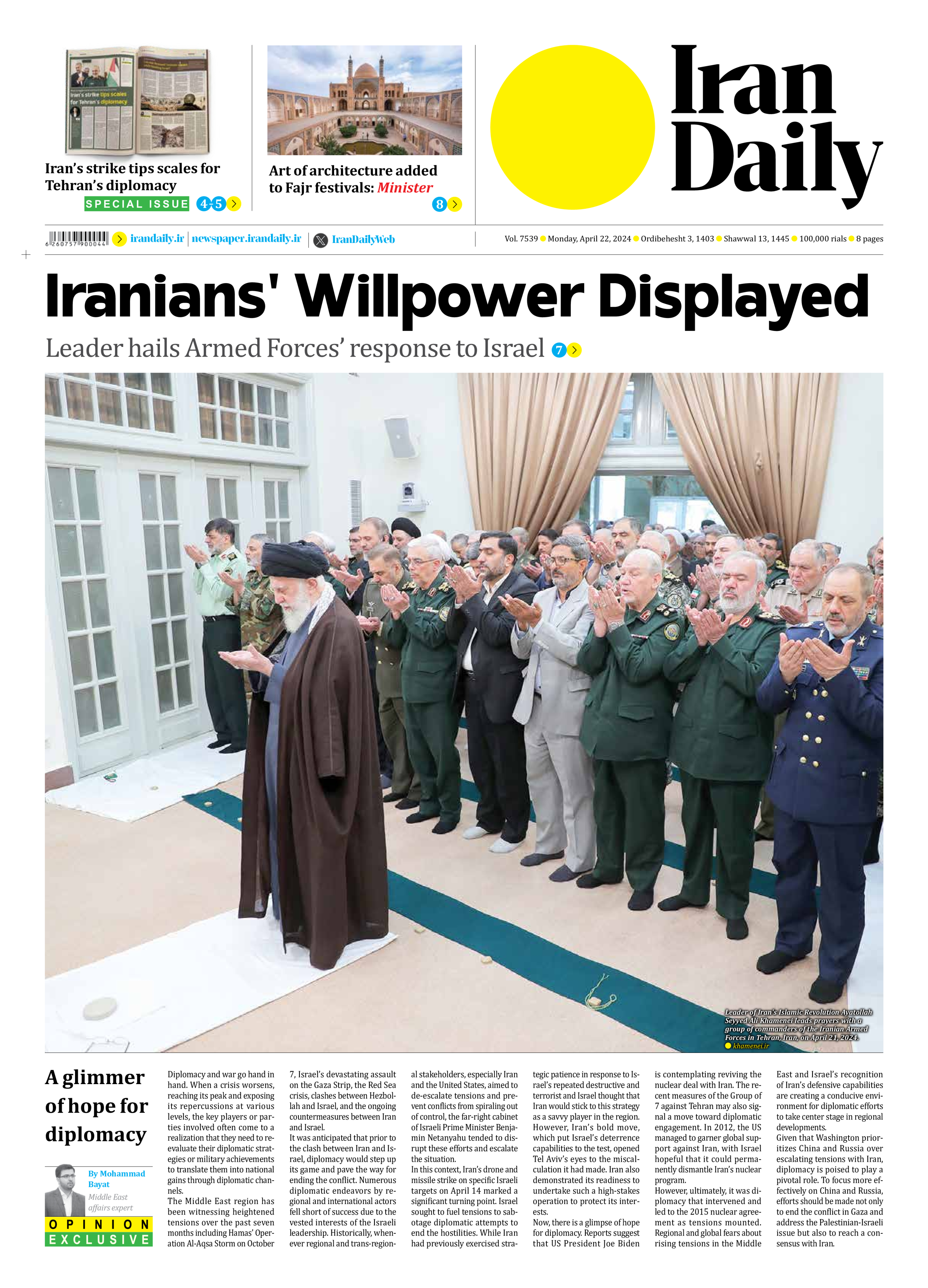
A glimmer of hope for diplomacy
By Mohammad Bayat
Middle East affairs expert
Diplomacy and war go hand in hand. When a crisis worsens, reaching its peak and exposing its repercussions at various levels, the key players or parties involved often come to a realization that they need to reevaluate their diplomatic strategies or military achievements to translate them into national gains through diplomatic channels.
The Middle East region has been witnessing heightened tensions over the past seven months including Hamas’ Operation Al-Aqsa Storm on October 7, Israel’s devastating assault on the Gaza Strip, the Red Sea crisis, clashes between Hezbollah and Israel, and the ongoing countermeasures between Iran and Israel.
It was anticipated that prior to the clash between Iran and Israel, diplomacy would step up its game and pave the way for ending the conflict. Numerous diplomatic endeavors by regional and international actors fell short of success due to the vested interests of the Israeli leadership. Historically, whenever regional and trans-regional stakeholders, especially Iran and the United States, aimed to de-escalate tensions and prevent conflicts from spiraling out of control, the far-right cabinet of Israeli Prime Minister Benjamin Netanyahu tended to disrupt these efforts and escalate the situation.
In this context, Iran’s drone and missile strike on specific Israeli targets on April 14 marked a significant turning point. Israel sought to fuel tensions to sabotage diplomatic attempts to end the hostilities. While Iran had previously exercised strategic patience in response to Israel’s repeated destructive and terrorist and Israel thought that Iran would stick to this strategy as a savvy player in the region. However, Iran’s bold move, which put Israel’s deterrence capabilities to the test, opened Tel Aviv’s eyes to the miscalculation it had made. Iran also demonstrated its readiness to undertake such a high-stakes operation to protect its interests.
Now, there is a glimpse of hope for diplomacy. Reports suggest that US President Joe Biden is contemplating reviving the nuclear deal with Iran. The recent measures of the Group of 7 against Tehran may also signal a move toward diplomatic engagement. In 2012, the US managed to garner global support against Iran, with Israel hopeful that it could permanently dismantle Iran’s nuclear program.
However, ultimately, it was diplomacy that intervened and led to the 2015 nuclear agreement as tensions mounted. Regional and global fears about rising tensions in the Middle East and Israel’s recognition of Iran’s defensive capabilities are creating a conducive environment for diplomatic efforts to take center stage in regional developments.
Given that Washington prioritizes China and Russia over escalating tensions with Iran, diplomacy is poised to play a pivotal role. To focus more effectively on China and Russia, efforts should be made not only to end the conflict in Gaza and address the Palestinian-Israeli issue but also to reach a consensus with Iran.







